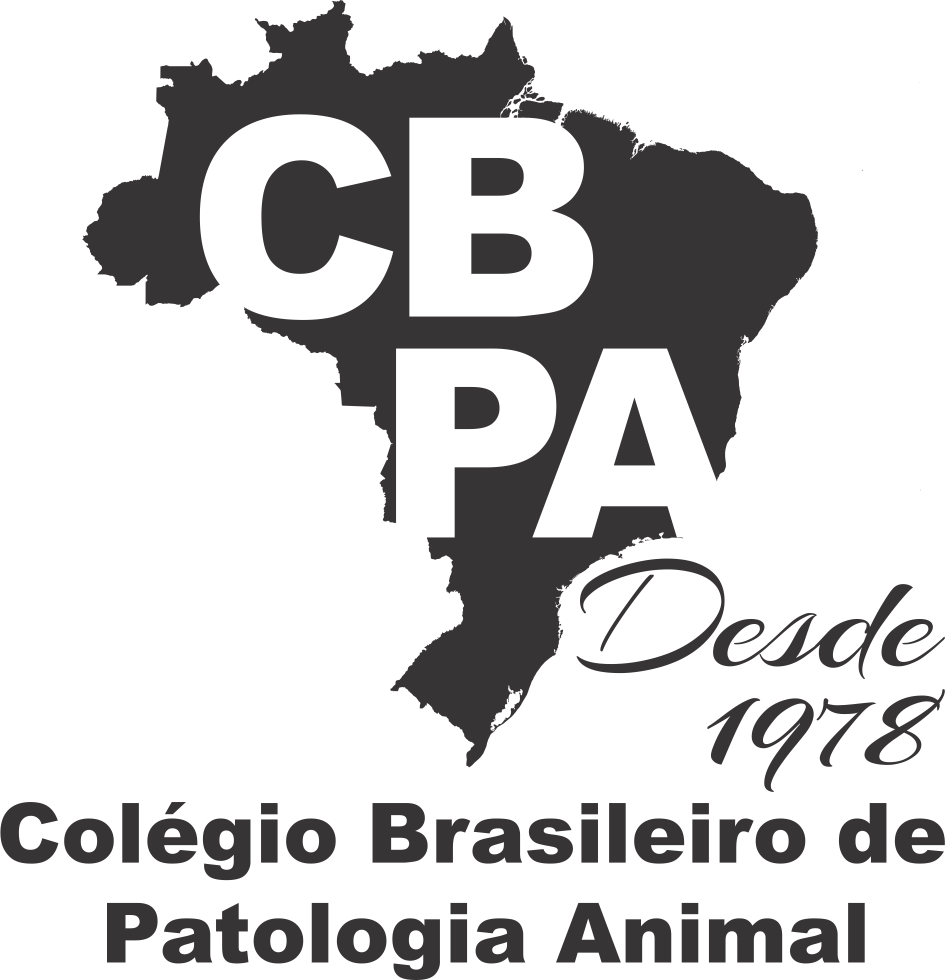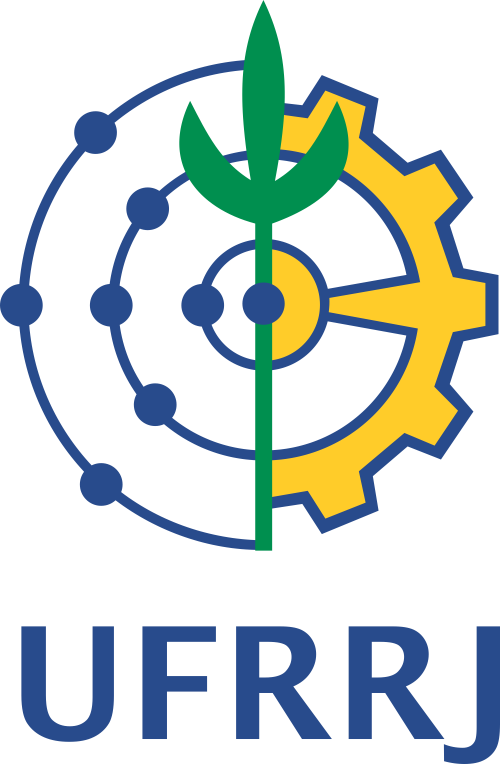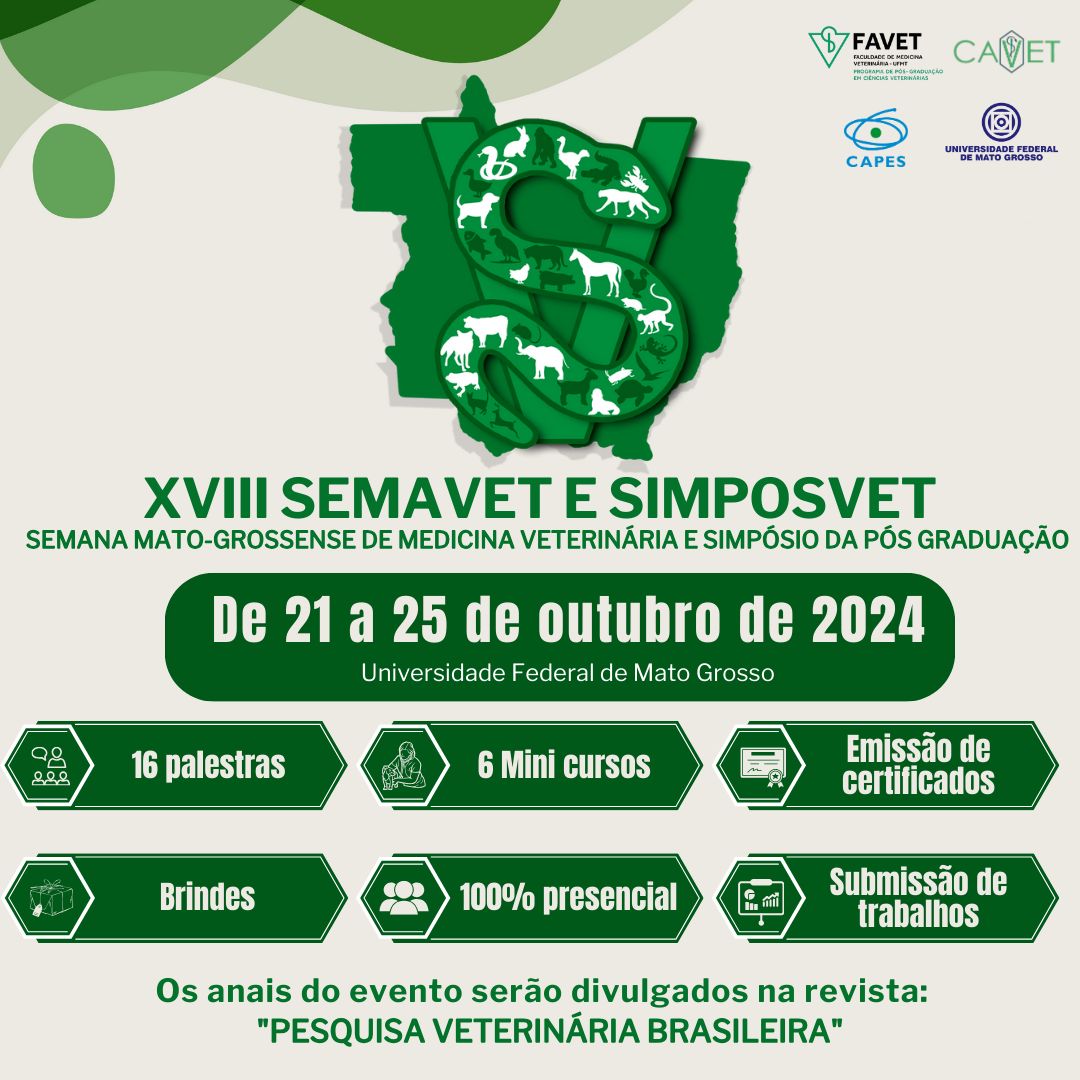The history of the “Colégio Brasileiro de Patologia Animal” and the Journal “Pesquisa Veterinária Brasileira”
The former “Instituto de Biologia Animal” (IBA) of the “Ministério da Agricultura”, today the “Setor de Anatomia Patológica” (SAP) of the “Universidade Federal Rural do Rio de Janeiro” (UFRRJ), aimed to diagnose diseases, mainly in cattle, nationally and internationally, from the diagnoses, elaborate methods of control and prophylaxis of herd diseases. The first journal that published IBA research results was the “Arquivos do Instituto de Biologia Animal” (1959-1961) which were continued with the Veterinary Series of the “Pesquisa Agropecuária Brasileira” (PAB) (1968-1976) edited by Embrapa. Following the discontinuation of the PAB Veterinary Series, Dr. Jürgen Döbereiner studied the possibilities to compensate for the loss of this veterinary scientific journal. In contact with the director general of CNPq's technical-scientific department, Prof. Manoel of Fleet Moreira, Dr. Jürgen Döbereiner has asked for help in publishing a nationwide veterinary journal. In order for CNPq to support, Prof. Frota Moreira suggested creating a scientific association that would respond as a legal entity to the scientific journal.
Thus the “Colégio Brasileiro de Patologia Animal” (CBPA) was created for the primary purpose of editing a specific but sufficiently comprehensive journal of veterinary medicine, the current “Pesquisa Veterinária Brasileira” (PVB). The founders were the Veterinarian Dr.h.c. Jürgen Döbereiner and Professors Carlos Hubinger Tokarnia, Severo Sales de Barros, Jerome Langenegger, Hugo Edison Barbosa de Rezende, Rubens Pinto Melo and Laerte Grisi, who signed the CBPA's constitution minutes in 1978. This association brought together researchers from the “Instituto de Biologia Animal” (IBA) and the “Universidade Federal Rural do Rio de Janeiro” (UFRRJ) and other reference research centers in the area of Veterinary Pathology in Brazil.
At the time of the creation of the CBPA, Dr. Jürgen Döbereiner, a founding member of the Brazilian Association of Scientific Editors (ABEC Brazil), devised a scientific journal to address, above all, issues such as diseases of economic importance to farm animals; but the issues of the publication to date were general in the field of veterinary medicine.
The journal “Pesquisa Veterinária Brasileira” started following the international model of journals published by Scientific Societies, unlike most Brazilian journals, which are edited by universities. The editorial support to CBPA was practically from the beginning by Neotécnica Editora Ltda, which rendered its services as Publisher to the journal for over 34 years.
In March 1981, with the creation of the CNPq Scientific Publications Support Program, the first quarterly issue of the “Pesquisa Veterinária Brasileira” (PVB) was published. Already with this issue of the journal was indexed by the Institute for Scientific Information (ISI) Philadelphia (today Thomson Reuters) and the Veterinary Bulletin, among others. After the positive projection and increase in the number of published articles, PVB started to receive a large number of articles submitted and since 2007 it started to be monthly and incorporated other areas, besides “Animais de Produção”/Livestock Diseases. Address issues from other areas, such as “Pequenos Animais”/Small Animal Diseases, “Animais Selvagens”/Wildlife Medicine (in collaboration with the Brazilian Association of Wildlife Veterinarians, Abravas), and the “Morfofisiologia”/Animal Morphophysiology area (in collaboration with the Brazilian College Anatomy, CBAA).
In 2015, in order to join forces, PVB established a partnership with Scielo and Embrapa, in which Embrapa assumed the responsibility of printing and distributing the issues. Subsequently, CBPA understood that for the future of PVB with a view to becoming an increasingly read journal, the partnership between SciELO, Embrapa and PVB ended.
Currently, the “Pesquisa Veterinária Brasileira” (PVB) publishes a bilingual journal, but is increasingly looking to publish articles in English. From 2018 articles from three areas of PVB will be published exclusively in English and only Livestock Diseases will publish articles in Portuguese or, preferably, all articles in English with Abstract in Portuguese. This editorial policy boils down to the beginnings of the PVB that was created to contribute to solving sanitary problems of the herds of the field in the area of Veterinary Pathology in a broad sense in Brazil.
With the advancement of technology, Scielo's availability of online versions and the ScholarOne System, PVB has reached a high scientific standard and currently publishes about 1,400 pages per year. CAPES recently provided PVB with an A2 rating, which makes the journal much sought after by researchers in Brazil and other countries.
The CBPA has its own statute and an organizational structure of positions and functions in which the general editor of the “Pesquisa Veterinária Brasileira” (PVB), Dr. Jürgen Döbereiner, was the president of this College from 1978 until 2018. In 2016, the elected CBPA Board was composed of Jürgen Döbereiner (President), Pedro Miguel Ocampos Pedroso (Vice President), Tiago da Cunha Peixoto (First Secretary) Luciano da Anunciação Pimentel (Second Secretary), Daniel Guimarães Ubiali (First Treasurer) and Saulo Andrade Caldas (Second Treasurer), with management by March 2020.
CBPA, in addition to publishing the PVB, promotes exchanges between researchers, conducts refresher courses and brings together its partners and other researchers annually through two bi-annual scientific events, the “Encontro Nacional de Diagnóstico Veterinário” (National Veterinary Diagnostic Meeting, ENDIVET) and the International Meeting of Animal Health and Prevention (ENISAP). In 2018 the 10th ENDIVET will be held in Recife/PE and in 2019 the 5th ENISAP will take place in Cuiabá/MT.
Original text written by Dr. Jürgen Döbereiner at Seropédica/RJ, on 12.4.2017.National Veterinary Diagnostic Meeting











